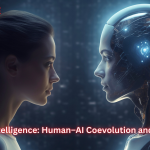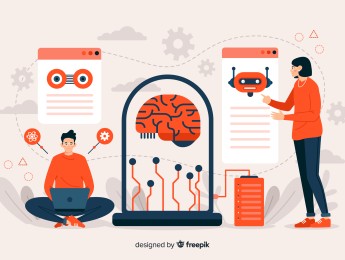As artificial intelligence (AI) continues to transform industries, the most successful organizations are those that integrate AI tools with human expertise to drive strategic decisions. Rather than replacing humans, AI offers powerful capabilities that, when used collaboratively, can enhance analysis, reduce uncertainty, and support innovation in complex environments.
This course explores how professionals and leaders can effectively work with AI systems to solve problems, generate insights, and make forward-looking decisions. Participants will examine real-world applications of AI in business strategy, risk analysis, policy planning, and operational optimization, while learning how to maintain human values, judgment, and accountability in the loop.
By the end of this course, participants will be able to:
- Understand the fundamentals of AI and its role in modern decision-making.
- Identify the strengths and limitations of AI systems in strategic contexts.
- Apply frameworks for integrating AI into business and policy decisions.
- Collaborate effectively with AI to enhance forecasting, analysis, and planning.
- Address ethical, legal, and operational risks in human-AI interaction.
- Promote responsible, transparent, and human-centered AI usage.
- Build readiness for future roles in AI-augmented decision environments.
This course is ideal for:
- Business leaders and strategic planners.
- Policy makers and public sector decision-makers.
- Data analysts and innovation officers.
- Project managers and operations supervisors.
- Consultants and advisors in digital transformation.
- Researchers and academics exploring AI applications.
- Anyone involved in high-impact or data-driven decisions.
This course adopts an experiential learning approach combining expert-led sessions, real-world case studies, collaborative simulations, and interactive tools. Participants will engage in decision-making scenarios, evaluate AI-generated outputs, and design human-in-the-loop models. A strong focus is placed on critical thinking, communication, and ethical awareness in hybrid decision systems.
Day 5 of each course is reserved for a Q&A session, which may occur off-site. For 10-day courses, this also applies to day 10
Section 1: Foundations of Human-AI Collaboration
- Overview of AI capabilities and evolution.
- What AI can and cannot do in decision-making.
- Key concepts: machine learning, natural language processing, predictive analytics.
- The role of human intuition, creativity, and empathy.
- Defining human-AI collaboration vs automation.
- Frameworks for joint decision processes.
- Benefits of augmented decision-making across sectors.
Section 2: Strategic Applications of AI in Business and Governance
- AI in strategic forecasting, scenario planning, and simulations.
- Enhancing supply chain, finance, and operations through AI.
- AI-assisted decision tools in policy development and public services.
- Case studies: Strategic decisions enhanced by AI insights.
- Cross-industry use cases: healthcare, energy, logistics, and governance.
- Success factors in implementing AI-supported strategies.
Section 3: Designing Effective Human-in-the-Loop Systems
- Principles of human-centered AI design.
- Balancing autonomy and control in AI systems.
- Decision authority: When humans should override AI.
- Building trust in AI outputs: interpretability and explainability.
- Role clarity between humans and machines.
- Interface design and decision dashboards
- Workflow integration strategies for AI-assisted teams.
Section 4: Ethics, Bias, and Risk in AI Collaboration
- Understanding algorithmic bias and its implications.
- Accountability and liability in AI-influenced decisions.
- Ensuring fairness, transparency, and inclusivity.
- Regulatory frameworks and compliance issues.
- Avoiding over-reliance on AI and decision fatigue.
- Case studies of AI misuse or unintended consequences.
- Ethical decision checklists for human-AI teams.
Section 5: Building Capacity and Readiness for AI-Augmented Leadership
- Skills required for future decision-makers in AI-enabled environments.
- Developing AI literacy and data fluency in leadership roles.
- Organizational culture for adaptive decision-making.
- Training teams to interact effectively with AI systems.
- Collaborative innovation: AI co-design and feedback loops.
- Future trends in human-AI partnerships for global challenges.
- Action planning: Implementing human-AI strategies in your organization.
Upon successful completion of this training course, delegates will be awarded a Holistique Training Certificate of Completion. For those who attend and complete the online training course, a Holistique Training e-Certificate will be provided.
Holistique Training Certificates are accredited by the British Accreditation Council (BAC) and The CPD Certification Service (CPD), and are certified under ISO 9001, ISO 21001, and ISO 29993 standards.
CPD credits for this course are granted by our Certificates and will be reflected on the Holistique Training Certificate of Completion. In accordance with the standards of The CPD Certification Service, one CPD credit is awarded per hour of course attendance. A maximum of 50 CPD credits can be claimed for any single course we currently offer.
- Course Code PI2-109
- Course Format Classroom, Online,
- Duration 5 days










